You can do this by leveraging Handlebars.parseWithoutProcessing which takes the input template string. If you use TypeScript, that returns a specific type hbs.AST.Program. You can filter for only the moustache statements, and then iterate through these statements to get the variable names.
This method also supports Handlebars helpers, so you can get the key for that, but because of this, this function is a bit more complex as you'd need to check different properties on the moustache statement:
/**
* Getting the variables from the Handlebars template.
* Supports helpers too.
* @param input
*/
const getHandlebarsVariables = (input = '') => {
const ast = Handlebars.parseWithoutProcessing(input);
return ast.body
.filter(({ type }) => type === 'MustacheStatement')
.map((statement) => statement.params[0]?.original || statement.path?.original);
};
Here's the TypeScript version, which is a bit involved due to the conditional properties, but can help explain the types a bit more:
/**
* Getting the variables from the Handlebars template.
* Supports helpers too.
* @param input
*/
const getHandlebarsVariables = (input: string): string[] => {
const ast: hbs.AST.Program = Handlebars.parseWithoutProcessing(input);
return ast.body.filter(({ type }: hbs.AST.Statement) => (
type === 'MustacheStatement'
))
.map((statement: hbs.AST.Statement) => {
const moustacheStatement: hbs.AST.MustacheStatement = statement as hbs.AST.MustacheStatement;
const paramsExpressionList = moustacheStatement.params as hbs.AST.PathExpression[];
const pathExpression = moustacheStatement.path as hbs.AST.PathExpression;
return paramsExpressionList[0]?.original || pathExpression.original;
});
};
I've made a Codepen that illustrates this. Essentially, given the following template:
Hello, {{first_name}}! The lottery prize is {{formatCurrency prize_amount}}! Good luck!
It will use window.prompt to ask the user for their name and the prize amount. The example also implements a helper formatCurrency. You can see it here: https://codepen.io/tinacious/pen/GRqYWJE




